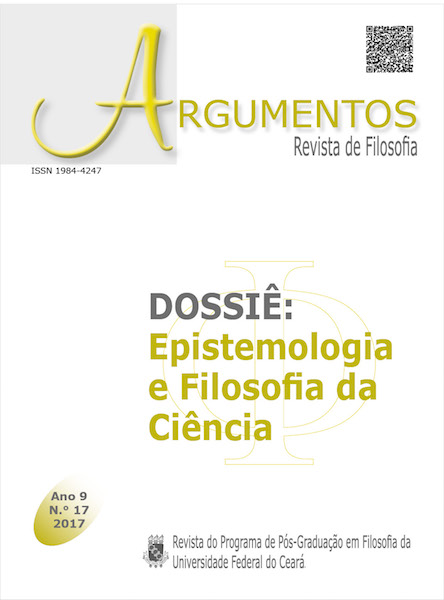Reconstructive impasses in the philosophy of science: causes and cases
Keywords:
Rational reconstruction. Observationalism x “theoreticism”. Inductivism x deductivism. Internalism x externalism.Abstract
Theories developed by philosophers of science have the ambition, among others, to understand what gives cognitive status to scientific theories. They also seek to promote the conceptual elucidation or the rational reconstruction of the scientific activity. Another aim is that of clarifying key concepts tacitly or openly employed by scientists. Aiming at the achievement of goals like these, philosophers have produced works of great magnitude on science. However, the reconstructive dissonances that have been accumulating over time make it imperative to question whether the philosophy of science has been successful, and whether, after elaborating metasciences whose conflicts remain unsurpassed, it can still seek innovative ways of reconstructing science. The divergences that have been recalcitrant compel the philosophy with pretensions to be an actual philosophy of science to stop giving primacy to the sieves and criteria that lead it to make epistemological judgments about science that submit themselves only marginally to the reality of science. Only by making a critical assessment of its own reconstructive effectiveness can philosophy of science glimpse ways of overcoming the reconstructive impasses in which it has become entangled.Downloads
Published
Issue
Section
License
Argumentos magazine is licensed under an International Creative Commons Attribution License.
The Magazine uses CC BY inclusion
1) The authors retain the copyright granted to the magazine or the right to initial publication, with the work regularly licensed under the Creative Commons Attribution, which allows the sharing of the work with acknowledgment of authorship and initial publication in this magazine.
2) The authors are authorized to contract additional applicable contracts, for non-exclusive distribution of the version of the work published in this journal (for example, publication in the institutional repository or as a chapter of the book), recognition of authorship and initial publication in this journal.
3) Authors are authorized and encourage to publish and distribute their work online (for example, in institutional repositories or on their personal pages) at any time before or during the editorial process, as they can generate productive changes, as well as increase the impact and reference of published work.




.jpg)










._._3.png)
1.jpg)
._._._.png)
